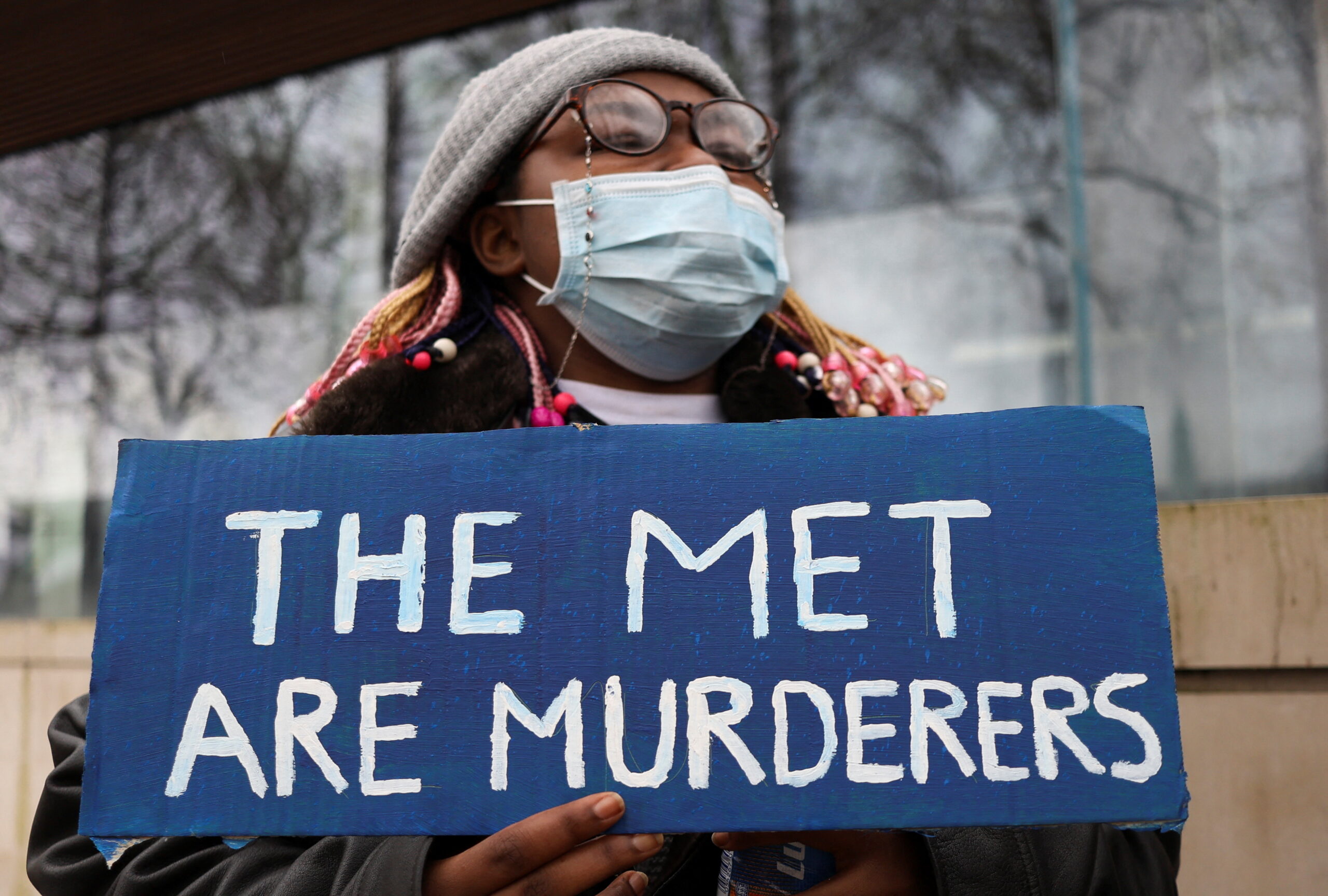
It seems incredible to think that as recently as December 2019, 77% of people in the UK felt that the police were doing a good job; 57% trusted them to tackle crime and 41% viewed the Met as non-racist. Today, the force’s net approval rating is just five points, down from 60 four years ago. Much has happened in the interim – not least the explosion of the Black Lives Matter and Kill The Bill movements – but still, it is hard to overstate how vertiginously Britons’ faith in the police has plummeted in less than half a decade.
The decline has been steady but consistent, beginning during the first Covid-19 lockdown. Yet it was the horrific kidnap, rape and murder of Sarah Everard by serving police officer Wayne Couzens in March 2021 that really accelerated the police’s fall from favour. Over the year following Everard’s murder, approval for the police dropped from +44 to +14. As more police scandals surfaced – such as the strip searching of Child Q and the sexual assaults committed by Met Police Officer David Carrick – the force’s approval declined further, and then dropped again following the Casey Review.
Unsurprisingly, public confidence in the police’s attitude towards BAME people and women has dropped particularly sharply, as has these groups’ own faith in the police. Voters now view the Met Police as institutionally racist, and have little confidence in the police to tackle sexual assault. A year before the murder of Sarah Everard, 55% of women felt the police were not treating reports of sexual assault seriously enough; by the end of March 2021, 7 in 10 women felt this way; that figure has remained largely the same ever since.
It’s worth saying that Britons’ perceptions of the police’s record on sexual violence is particularly bad. On anti-social behaviour and vandalism, for instance, public faith in policing has effectively plateaued for the past four years. But when it comes to how the police handle reports of sexual assault, voters are clear: they think the police are doing an abysmal job.
The same is true of racism, particularly within the Metropolitan Police. In October 2019, just a quarter (25%) of British voters felt that the Met was institutionally racist. By the end of the coronavirus lockdowns – during which police fined Black people for breaching covid at a rate 2.6 times higher than their white counterparts – 36% thought they were racist. A few months later, two Met Officers were found guilty of sharing photos of two murdered women and using derogatory language about the victims. Following this scandal, perceptions of Met Police racism jumped to a new high (44-46%). Today, 51% of Londoners view their police force as racist.
As for the victims of police racism, the opinions of BAME voters on police are not tracked over time as consistently as general opinion, but what data we do have shows a sizeable shift: in a 2013 poll, 59% of BAME Londoners felt that the Met was institutionally racist. By March this year, that figure was 72%.
Even more striking is the fact that 72 per cent of BME Londoners surveyed by our partners @YouGov believe that the #MetPolice is ‘institutionally racist’, compared to 59 per cent of White Londoners. pic.twitter.com/QdldrI5KP6
— Mile End Institute (@MileEndInst) March 24, 2022
Finally, there has also been a decisive shift in voters’ perceptions of basic police competence. At the end of 2019, Brits trusted police to deal with crime in their area by a 20-point margin (57% yes, 37% no). Yet this rating has now fallen into negative figures (-14), with 39% saying they have confidence in the police to deal with crime and 53% saying they do not. This is notable because crime actually remains lower than it was in 2019, yet voters have little confidence in the police to do anything about the crime they do experience.
In the space of four years, British attitudes towards policing have been transformed. Brits feel largely apathetic towards the police in general terms, a massive swing compared to 2019 when they overwhelmingly approved; the Met police is decisively viewed as institutionally racist by both Londoners and the country at large; and voters now have no confidence that the police can actually resolve crime.
The British public has not become totally police-sceptic: they still favour new anti-protest powers for police, and approve of how the police handled the coronation protests. But a series of damaging scandals has undeniably shattered the once-solid faith that the British public had in the institution of policing, and especially in the Met. It’s in this context that the human rights organisation Liberty has launched its Holding Our Own campaign, which calls for communities to step in to the spaces often occupied by police, such as schools, addiction and mental health services. The public mood is certainly ripe for it.
Ell Folan is the founder of Stats for Lefties.


